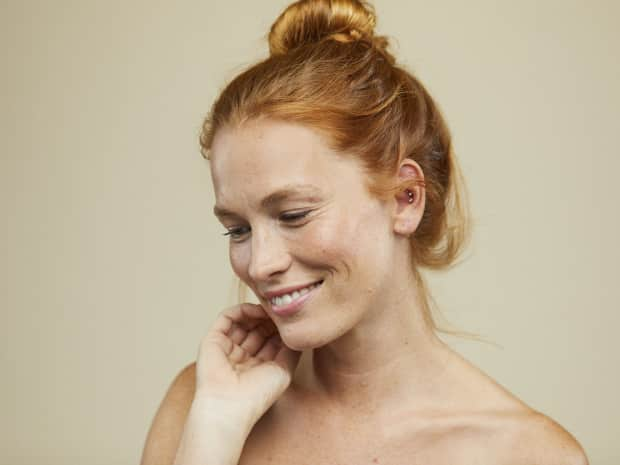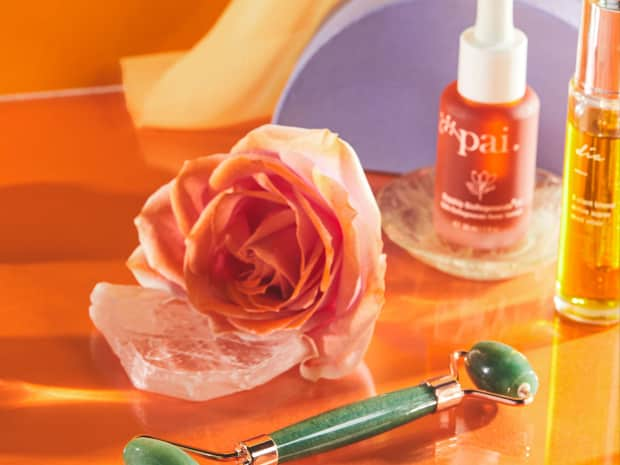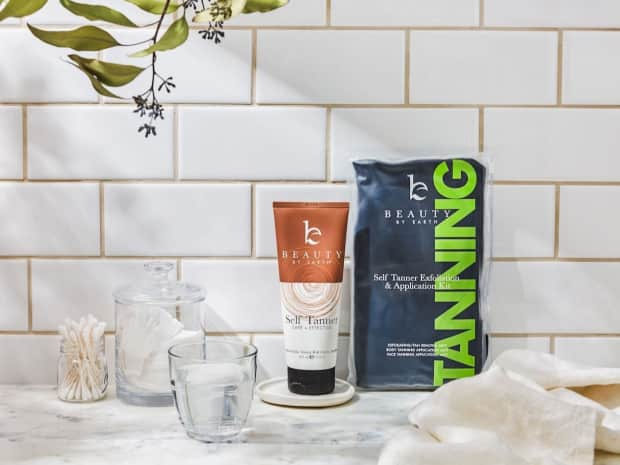
Healthy eyes
Knowledge is power, and making informed choices about what you put near your peepers will help you keep you seeing perfectly for the long haul.


Last Updated: April 5, 2022
If eyes are the windows to the soul, the lashes are the curtains — so let's take a look at what's in conventional mascara, the benefits of switching to natural, and our customer- and staff-favorites.
Packing for a trip, very few of us would willingly forego our mascara. Even those who are makeup-averse often take a few swipes of the tube before leaving the house or joining the video meeting. We all appreciate long, fluffy eyelashes. But do you know exactly what you're sticking onto your delicate lashes and, possibly, rubbing into your eyes when you remove your mascara?
We're here to help you make the most healthful, informed choices when it comes to home, personal, and beauty products, so let's take a look at what's in conventional mascara, the benefits of natural mascara, and some of our customer- and staff-favorite natural mascaras on Grove.
We're not into sweeping generalizations here at Grove. We prefer gathering data and making reasonable choices based on facts. Hence, it's not that mascara is all "bad" — the answer is more nuanced. First, we need to consider overall behavior when it comes to using any mascara in the most healthful way.
Treating your eyes with the utmost care is key. Try to avoid rubbing your eyes when you’re wearing mascara, even if they're itchy. This is especially important when removing your makeup, since tiny bits of mascara can get into your eyes, blocking tear ducts and causing irritation or even an infection.
Dermatologists agree that removing your makeup before you go to sleep is crucial for your eye health. Documented — and scary! — cases of accumulated bacteria, permanent harmful growths under the eyelids, and abrasions of the eyes are attributed to sleeping with mascara on. Make it a habit to completely remove your makeup after every single wear.
Seen an expiry date on your mascara lately? Overlooking it is easy, especially once the microscopic print gets worn off the tube by day-to-day use. Here's your guideline, per dermos: Been a few months, as in 90 days or longer? Toss it. Plus, replacing it is an opportunity to shop, so.
Grove Tip
When you do remove your makeup, use the gentlest remover possible, and gently wipe — don't rub! A soft touch is super important, and natural removers like coconut oil are amazingly effective at removing even waterproof makeup without needing to scrub.
In addition to paying attention to how you wear and remove any type of mascara, beware of the following ingredients that have been linked to possible harmful effects on your health. Read 'em — but don't weep, because you can avoid these baddies by looking at labels.

Knowledge is power, and making informed choices about what you put near your peepers will help you keep you seeing perfectly for the long haul.
Ingredients in nontoxic mascara — like coconut oil, beeswax, and vitamins — help soften, moisturize, and in turn encourage more growth and less lash breakage.
Zero-waste mascaras are far less harmful to the planet, whether they arrive in BPA-free plastic, bamboo, or paper packaging. Natural mascaras contain ingredients that are from the earth and are biodegradable.
The simplest way to pick the right mascara is to read our recommendations and choose what appeals to you. At Grove, we do the research so you don't have to. You can trust that the only products allowed on our site are those that share the same eco- and health-mindfulness that we do. Shop below for our favorite ways to lash out (in a good way).
Looking for more sustainable makeup & skin care swaps and other eco-friendly switches you can make at home? Grove has you covered. From timely topics such as our handwashing and hand sanitizer breakdown to evergreen primers like our simple ways to reduce your plastic use at home, our handy guides are here to answer your most pressing questions. And let us know how if you have any menstrual cup questions (or share your own tips for making the switch using #grovehome) by following Grove Collaborative on Instagram, Facebook, Twitter, and Pinterest.
If you're ready to make the switch to natural lip balm or other eco- and body-friendly products, explore Grove Collaborative's clean beauty selection.

Learn why these natural toners are your secret step to healthy skin.

Learn about the benefits of natural eye creams for the most delicate area on your face.

A guide to the best natural lip balms and why they’re so effective.

A breakdown of natural self tanners and sunless tanners — and what might be lurking in conventional brands.